Life in 2020 after Covid-19. Continue reading
The Worst Year Ever?: The virus seemed to appear in or around Wuhan, China, in late 2019. It appeared to be extremely contagious. It was given the name COVID-191 on February 11, 2020. In the past such scares (SARS and Ebola) had pretty much bypassed the West, but within two weeks Italy had become a global hotspot. China, South Korea, and New Zealand fought the disease relentlessly, and had very good results. If all other countries had done the same, the disease probably would have run its course in a few months. However, because in many cases the disease had mild or even undetectable symptoms, many people did not take it seriously and were scornful of those who did.
Editorial note: I have decided to capitalize Pandemic as a sign of respect. There have been other pandemics in my lifetime, but Covid-19 was the only one that had a significant effect on the U.S.
Cases began appearing in the U.S. in early February. The first death was reported in the state of Washington on the 29th. On March 11 the World Health Organization declared it a pandemic. Two days later the Trump administration declared a national emergency and issued a travel ban from 26 non-European countries. However, the ban only applied to people who were not U.S. citizens. Need I add that this was an election year?
On Sunday March 15 Felix Springer and I played in a STaC game at the Hartford Bridge Club. The talk that day was largely about Colorado Springs, where a woman who had played in a sectional tournament may have been a super-spreader. She competed in the Bridge Center there in six events between February 27 and March 3. She died on March 13.
I later learned that Fred Gagnon had played in the same tournament, but he never was at the same table with her. Before the Pandemic struck Fred played both in Simsbury and Hartford and frequently partnered with my wife Sue. Details about the Colorado Springs incident can be found here.
New York and its suburbs were hit hard very early. While attending a large gathering at a synagogue in Rob and Laura Petrie’s hometown of New Rochelle, a man who had recently been abroad passed the disease on to many people, including the rabbi. At one time 108 of the state’s 173 cases were in Westchester County, which borders on Connecticut.
My notes about the bridge game at the HBC on March 15 record that despite some mistakes Felix and I won.2 I remember that one woman who played that day wore a medical mask of some sort. We already knew that the club would be closed indefinitely after the game. Felix and I were the last two to leave the Bridge Center. He was responsible for locking up after we left. At the last minute I dashed over to the shelves that contained non-bridge books and selected Magpie Murders by Anthony Horowitz3 and Fatherland by Robert Harris. Both books resided in my house for much longer than I had planned, but I did eventually return them.
Sue and I had signed up for a bridge cruise on the Danube River with the famous expert, Larry Cohen. We were scheduled to leave on March 17. That cruise never happened. The details of the story are provided here.
Responding to the Pandemic: Although President Trump had declared a state of emergency, he, like most Republicans, absolutely refused to take the disease seriously. He made it clear that masks were not mandatory, and he refused to wear one. He then proceeded to make an utter ass of himself whenever he tried to talk about the Pandemic. He even predicted an “Easter miracle” that absolutely did not happen. Despite the fact that it was obviously an irresponsible if not evil idea, he actually encouraged everyone to go to church on that day.
Not only did this laissez-faire approach probably cost him the election; it also cost the country several hundred thousand lives. The Center for Disease Control also fumbled the ball. For some reason they refused to accept the test that had been developed by the World Health Organization, and their own test proved unreliable. So, for months as the virus spread geometrically throughout the country, the U.S. had no test. Soon the situation was much worse in America than anywhere else in the world.
To be fair Trump did direct more than a billion dollars to a virtually unknown company named BioNTech to develop a vaccine using mRNA technology. Others also were funded, but BioNTech received the biggest prize because its leaders claimed that with proper funding they could produce a new vaccine in a few months. Their effort was dubbed Project Lightspeed. Obviously Trump hoped that they would deliver by election day, but they missed by a few weeks. In fact, Pfizer, which did not participate, developed and tested a similar vaccine a little sooner, and the Chinese were already using a somewhat inferior vaccine by then.
Although most people who contracted the initial virus recovered after a week or so, the aged and those with comorbidities did not fare as well. The death rate in 2020 was over 3 percent. Nursing homes throughout the country often experienced horrendous situations. Hundreds of thousands of people died needlessly.
Of course, many people still had to work, but most of us hunkered down and stayed in our houses. We had to learn to order groceries—and anything else that we needed—online. I wrote a little program to allow members of the Simsbury Bridge Club to send me descriptions and/or pictures of their new lifestyle. I then posted them on a webpage that anyone could view. A few people sent responses, and I promptly posted them. You can view them here.
Reading: I also posted quite a few entries about my own life. I took advantage of the extra free time to read more. By June 28 I had read nine novels: The Three-Body Problem by Cixin Liu, Magpie Murders, Fatherland, Supermarket by Bobby Hall, Moriarity by Anthony Horowitz, Two for Texas by James Lee Burke, The House of Silk by Anthony Horowitz, The Brothers K by David James Duncan, and Wayfaring Stranger by James Lee Burke. Supermarket, which I bought at a rare venture to the Target store, was awful. The others were all pretty good. The Enfield Public Library was closed. I purchased several books from Powell’s in Portland, OR. It took them almost a month for them to send them, but their selection of new and used volumes was outstanding.
What I especially liked about Powell’s was the number of books by Jack Vance that were offered for sale. I found some listed there that I had never seen in a library or bookstore, including the one that won an Edgar award for him, The Man in a Cage.
One of the last books that I later ordered from Powell’s was Jack Vance’s autobiography. Because I like a challenge—especially when I had an enormous amount of time on my hands—I selected the version in Italian, Ciao Sono Jack Vance! (E Questa Storia Sono Io). Vance has always been one of my favorite authors, and his last book was certainly one of his best. What a life he led! He managed to finish the book even though he was in poor health and nearly blind. He had to dictate the entire volume.
I was so inspired by this book that I decided to undertake this set of blog entries, which I later labeled The 1948 Project. The details surrounding its genesis have been recorded here.
Most aspects of life were put on hold in the spring and summer of 2020. The American Contract Bridge League (ACBL) canceled all three of its national tournaments and prohibited its units and districts from holding tournaments for the rest of the year. The National Debate Tournament was also canceled. Hollywood closed shop.
Most schools attempted to reopen in the fall, but the result was a huge spike in the number of cases of COVID-19. The election was held in November, of course, but a very large number of people voted by mail rather than in person.

Exercise: I also exercised more during the lockdown. I was walking 35-40 miles per week, outside if the weather was tolerable, and on the treadmill when it wasn’t. On May 2 and a few other occasions I walked ten miles outside.
Later in the summer, however, I could no longer walk more than a mile or two without a pain gradually developing in the top of my right foot. This condition, which caused me to limp, bothered me throughout the year. I still walked, but I had to stop and stretch my IT band for a couple of minutes. Sometimes I would need to perform this ritual two or three times in a 2.5 mile lap. I often stopped after one lap. However, when I walked on the treadmill it hurt a lot less.
Therefore, I began to walk indoors more frequently. On my convertible laptop computer, a Lenovo model called Yoga, I watched many operas from the Metropolitan Opera’s streaming service that were new to me, including Ghosts of Versailles, La Wally, Orphée et Eurydice and many operas by Massenet and Bellini. I was really impressed by performances by Natalie Dessay, Teresa Stratas, and Marilyn Horn. The most bizarre moment occurred when Renée Fleming appeared in Rossini’s Armida. In a tender moment she rubbed cheeks with tenor Lawrence Brownlee, who happened to be black. When they parted more than a square inch of his brown makeup remained on her cheek.
I also watched operas on YouTube while I was walking on the treadmill. The quality was a little spotty—both the performances and the recordings. However, this introduced me to several of the more neglected operas, some of which were delightful.
The best thing about the YouTube operas was that I was able to make MP3 files of them using a piece of free downloadable software called MP3Studio. I had already made MP3 files out of my opera CD’s and downloaded them to a small MP3 player that I had purchased at Best Buy.4 I added quite a few operas from YouTube. My favorite was Tchaikovsky’s Cherevichki. I liked it so much that I purchased a DVD of its performance at Covent Garden in London.
I also downloaded hundreds of great rock and roll songs of the sixties and seventies. I could scarcely believe that most of the best songs from Bob Dylan, the Beatles, and the Rolling Stones were now available for free.
When I walked around the neighborhood I listened to music on the tiny MP3 play. In the cold weather I used my Bose headphones. When it was warmer I used ear buds.
Toward the end of the year I misplaced one of the arch supports that I had purchased from Walmart before the Pandemic. These were springy pieces of metal (I think) that were inserted into bands that wrapped around the foot and were secured by Velcro. I bought new ones at the same store that were spongy balls in elastic bands. They cost $10.
After I had used the new ones for about a month, the pain in my foot ceased, and I could walk five miles without stopping. I understand that post hoc ergo propter hoc is a famous fallacy, but I did not even consider reverting to the original pair when I discovered the hiding place of the lost arch support.
I don’t remember how I heard about it, but on November 2 I subscribed (for only 8$ per month!) to a streaming service called MHz Choice. It had all thirty-seven of the Commissario Montalbano movies that I had learned about in 2016 in Sicily5 as well as dozens of other European mysteries and other offerings. All of them were captioned in English. I started with Montalbano (and a prequel called Young Montalbano), but I soon found many other shows that I enjoyed tremendously. There were also a few mysteries on YouTube, including the entire set of Inspector Morse shows.
During one of my walks around the neighborhood a bizarre event occurred. Just after I reached my house a car pulled into the driveway. It was driven by a man carrying three large cheese pizzas from Liberty Pizza. Evidently my phone, which was securely in my pocket, had somehow activated the Slice app to order the pizzas while I was walking. I was billed for them, but the charge was eventually removed from my credit card account after I complained about it.
On August 4 there was a tornado watch. A branch fell and damaged our gutter. A very large branch fell from a tree near the house on 10 Park St. It landed on and crushed a pickup truck that had been parked nearby. A week or more was required to clean it up. I don’t know what became of the truck.
Translation: In desperate need of a project to occupy my mind during the day, I decided in June to translate one of my travel journals into Italian. My Italian teacher, Mary Trichilo (TREE key low) agreed to read my efforts and to provide suggestions. I chose our 2005 Rick Steves trip to Italy that was billed as the Village Italy Tour.5 It was the first one on which the Corcorans joined us, and the first one for my first digital camera.
Reliving that experience was great fun; some of the best moments in my life occurred during those sixteen days. It was also a pretty good way to build my Italian vocabulary back up. I could only hope that I would be able to use it one day. I discovered a few websites that helped me a lot—translate.google.com, of course, but also Reverso.net and LanguageTool.org.
Masks: In the last three quarters of 2020 masks were required virtually everywhere. During the summer it was discovered that the disease was spread by aerosols from exhaling, talking, and singing. Moreover, being indoors greatly increased the probability of transmission. So, it was generally considered acceptable to go outside unmasked, but people were warned to stay at least six feet away from strangers. The last practice was called “social distancing”.
The Center for Disease Control (CDC) had a problem. Although they knew that the N95 masks that had been approved for use by NIOSH for painters and others who were often exposed to aerosols were by far the most effective, their official announcements said that people did not need them. Instead they recommended that any type of face covering would work just as well. So, a lot of people made their own masks or even wore bandannas across the lower half of their faces like outlaws in westerns. Others, such as I, purchased ten cheap cotton masks made by Hanes that could easily be washed.
There was a good reason for this deliberate misinformation campaign. A shortage of N95 masks was feared, and it was considered critically important that the best protection (and tightly fitting N95 masks offered much better protection) be available to those who dealt with known COVID patients or with large numbers of people in situations that precluded “social distancing”.
For some people masks, especially the ones that worked the best, were very uncomfortable. They did not bother me much at all. I was, however, quite happy when, during the summer, it became apparent that masks were not necessary outdoors. Still, when I took walks I made certain to keep at least six feet away from other walkers whenever possible.
Health: I was never healthier than in 2020. I experienced no significant ailments at all—not even a cold or indigestion. That pain in my foot bothered me a bit, and on one occasion the nail on my left little finger got bent back and eventually fell off. On the other hand, I was exercising so much that I had to make a shopping trip to Kohl’s to buy a smaller belt to hold up my pants.
My mental state was pretty positive as well. I was able to concoct several interesting projects to occupy my mind when I was not exercising or reading. I would have appreciated a diversion now and then, but most of my life had been good preparation for an extended lockdown. I had a lot of experience at keeping myself occupied.
Sue was also pretty healthy physically, but she got winded very easily. Moreover, she has always been a much more social animal than I was. The strain of the isolation on her spirit was quite evident.
We took a couple of short trips just to get out of the house. At some point in June or July we drove down to Gillette Castle and had a little picnic. We found a spot that was shady and isolated. The walk from the parking lot to our site was uphill, and it definitely wore Sue out. After lunch I took a hike up to the castle by myself. Only a few people were there, and I kept my distance from all of them. This was a very simple outing, but it felt like a small taste of freedom. Perhaps prisoners have the same feeling the first time that they are allowed into the exercise yard.
On September 24, when it finally appeared that the Pandemic had abated a bit, we made a road trip to Roger Williams Zoo in Providence. The highlight for me was when we went to see the sloths. I got to show the attendant there that I was wearing a tee shirt with a sloth on it. Sue had bought it for me in Costa Rica.8
On the way back to Enfield we made a stop in Willimantic so that Sue could show me the Shaboo Stage, an outdoor venue that she had frequented to watch local musical performers, mostly blues bands. Sue was friendly with several of these people, and she was very worried for them. The lockdown had eliminated their primary source of income.
We made a third stop at Oliver’s Dairy Bar where we ordered burgers and listened—in our cars—to Bruce John singing and playing his guitar. A few people got out of their cars and danced. It was all a little weird, but it was something to do. Sue had claimed that the food would be very good, but we were both disappointed in it.
People our age were terrified to be among strangers, and reasonably so. Not everyone survived that first year. I did not hear of anyone who died directly from COVID-19, but all of the following members of the debate community died in 2020:
- Max Horton, whom I knew quite well from the Simsbury Bridge Club.
- David Waltz, whose wife I knew from Tuesday evenings at the Hartford Bridge Club and at tournaments. The three of us even went out to dinner one evening in Hyannis, MA.
- Elaine Jaworowski, who was a regular player at the HBC morning games.
- Gladys Feigenbaum, who only played occasionally at the HBC and did not seem to be in great health before the lockdown. I did not know her well.
The most shocking news was the murder of Grand Life Master Victor King in his own home in Hartford on July 26. He was a very popular player and, to all appearances, had no enemies. His assailant was also his tenant. I had played against Victor a few times and I had talked with him about a few matters concerning the district’s website. At the time the incident was covered in local and national outlets as well as abroad. I was not able to find any information about the disposition of the case.
On July 23 my occasional bridge partner, boss, and good friend Bob Bertoni was operated on for the second or third time in recent years. He recovered enough to continue working as the District Director for the rest of the year, but I think that everyone knew that the handwriting was on the wall.
Sue’s friend and occasional bridge partner, Ginny Basch, also went into the hospital in July. A few days after she had been released she needed to return and have a heart valve inserted. She seemed to recover well enough after that.
On November 16 we learned that Tyesha Henry, Sue’s long-time protégée, had COVID-19. Sue had been with her in an automobile on November 6, but Sue did not develop any symptoms. She dodged a bullet.
Food:Few restaurants were open, and those that were provided only delivery and pickup orders. Most of the time Sue and I ate at home. I continued going to the grocery store, but I always wore a mask (as did nearly everyone else), and I always used the automated checkouts. I seldom was within ten feet of another human. Sue usually ordered groceries online and drove to the store to pick them up.
We ordered pizza perhaps once a month, and we drove to KFC three times7, once in West Springfield and twice in East Windsor. The first drive to East Windsor, which was probably in May, was very strange. There were almost no cars on any of the roads, but there was a long line at the drive-through window at the KFC/Taco Bell restaurant. I did not get my order until twenty-five minutes after my arrival. When I arrived home we discovered that the bags contained both our $20 fill-up and someone else’s Taco Bell order.
On July 18 Sue and I drove over to the beautiful house of Ken and Lori Leopold in Avon, CT. We were originally planning to go to a restaurant for supper, but the negotiations between Lori and Sue for a suitable place with outdoor seating broke down. We enjoyed a very nice supper and then played a few rubbers of bridge. I played with Sue and then Ken. Lori had never played rubber bridge before! That was the only time in the last nine and a half months of 2020 that we dined indoors with other people.
Sue and I celebrated all of the holidays alone together in our house. That was what one did in The (first) Worst Year Ever.
The Neighborhood: The big news was that in the spring the family that lived diagonally across the street from us (“cattywampus” as my Grandmom Cernech would have said) on the southwest corner of North St. and Allen Pl. unceremoniously moved away. This was the family with several trucks and an ATV that the kids rode around on. The father often flew the “Don’t tread on me” flag and other right-wing banners on their flagpole.
The house (a small ranch house with one garage) and yard were both in bad shape when the family abandoned them. Workers spent weeks getting it back in marketable condition. It was auctioned off; no “For Sale” side ever appeared. It was purchased by a woman who has kept it in immaculate conditioned. She even resuscitated the lawn.
The flagpole has never been used since the other family left.
Three doors to the west of them the “patriotic” cause was taken up by a couple. She grew sunflowers accompanied by Bag-a-Bugs and had a statue of an owl that turned its head occasionally. I scoffed at the former and was enthralled by the latter.
He was another kettle of fish. He also had a flagpole. He flew the “Don’t tread on me” flag, but also other flags including a Trump-Pense banner ones about POW/MIAs or respecting the police. Another Trump sign was proudly displayed above the garage. He also had a “concealed carry” sticker on his car’s window. Most bizarrely, he had a fenced-in back yard with red triangular signs on both gates with the word “MINES” on them, as if the back yard contained mines. I took him seriously; he seemed to be retired from both the military and law enforcement, and he was obviously “gung-ho”.
I generally gave these people a wide berth, but my walking took me past their house quite often.
We really only have one next-door neighbor, the residents of 1 Hamilton Court. A couple with children had been living there for quite a few years. He disappeared from the neighborhood at some point before the Pandemic started. A different man moved in and immediately started making over the house and the back yard. I talked to him for a few minutes once. He seemed friendly enough. Anything would be better than his predecessor, who had said he would kill our cats if they ventured onto his property.
The Pets: Our two cats, Giacomo and Bob, really enjoyed the lockdown. Sue and I got in the habit of watching television together from 8 p.m. until I could no longer keep my eyes open, which usually occurred between 9:30 and 10. The cats loved the idea that we were both sitting still. Giacomo often sat peacefully on my lap, as he had done for many years. Now, however, the two of them would also sometimes lie together on a blanket that Sue had laid out on the floor. Giacomo seemed to enjoy having a friend. They assumed every position imaginable, including spooning.
In October Giacomo surprised me by catching a moth. When he was younger he was a fearsome hunter, but in 2020 that was the only time that he showed much interest in any wildlife.
Sue and I never knew Giacomo’s real birth date, but we celebrated it annually on November 1. 11/1/20 was his seventeenth birthday. When I returned to bed for my first nap of the day I was shocked to find Giacomo had climbed up on the bed. We enjoyed a nap together for the first time in at least a year.
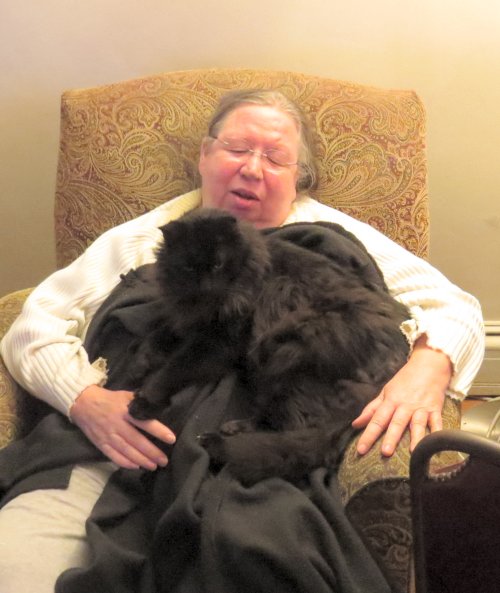
On August 4th, the day of a tornado watch, I discovered that at least one of the cats (I suspected Giacomo) had stopped using the ramp in the basement that led to the cat door and had instead designated an area of the newer side of the basement as an open latrine. After I cleaned up the smelly mess I drove to Target and purchased a large litter box and some cheap litter.
The cats quickly adjusted to using the litter box, but they tracked litter all over everywhere. I solved the problem by switching to Clean Paws, which was much more expensive but did not stick the their feet as much.
Friends: Sue had many, but I really only had one friend, Tom Corcoran. He left the Land of Steady Habits shortly after the Pandemic struck and rented an apartment in Burlington, VT, which is where his children lived.
In 2020 we only saw him once in person. On August 1 he was back in his house in Wethersfield to take care of some business, and Sue and I drove to meet him there. Sue brought with her and antique ice box that Tom pledged to fix it up somehow.
We celebrated Tom’s birthday with a Zoom call on October 27. You should be able to calculate his age if you have read these blogs carefully.
Bridge: There was no face-to-face duplicate bridge in 2020 after the middle of March.
Many people played online. The ACBL even set up an arrangement for “virtual clubs” that held online sanctioned games of eighteen boards. I did not participate.
On November 18 District 25’s Executive Committee held a meeting on Zoom. It was depressing. The ACBL was probably going to cancel the NABC in the spring in St. Louis and the one scheduled for Providence, RI, in the July of 2021. Most of the members of the Executive Committee, including me, were also on the committee for the latter event. It was crushing news.
The North American Pairs and Grand National Teams would be contested online. I did not like this news at all, but I asked Ken Leopold, Felix Springer, and Trevor Reeves to play with me, and they all agreed. I told Ken that I would practice as much as I could online. We played online on Christmas Day, but that was the only time in 2020. I hated the experience, but this might be my last chance to play in Flight B of the GNT.
Sports: The National Basketball Association, like all other forms of indoor entertainment, suspended play when the Pandemic hit. In order to salvage part of the 2019-2020 season the league spent $190 to build a “bubble” at Disney World in Orlando, FL. Twenty-two of the league’s thirty teams were invited to the city to play the remaining eight regular season games and the playoffs behind closed doors. Of course, the games were televised.

This approach worked very well. Everyone involved in the games stayed in the bubble and was tested regularly. No cases at all were reported. The season ended on October 11, with the Los Angeles Lakers crowned as champions. The league generated about $1.5 billion is revenue.
Other sports did not follow the league’s example. The only one that I was interested in was college football. The Big Ten was pressured by Trump into playing the season, sort off. All non-conference games were canceled, and the beginning of play was postponed until October 24. Games were played in empty or nearly empty stadiums.
Michigan was ranked #18 in the preseason and beat #21 Minnesota 49-24 in the opening game. This was followed by three embarrassing losses. In week 5 the Wolverines used a new quarterback, Cade McNamara, to beat Rutgers in three overtimes. In week 6 they lost to Penn State at home. Since all of its remaining games were canceled due to COVID-19 outbreaks, the team ended the season 2-4, the worst record in living memory.
The whole idea of playing during a pandemic was idiotic. The NCAA ended up granting extra eligibility to all of the players.
I guess that sports addicts enjoyed watching the competitions in empty stadiums and arenas. I did not watch any sports at all during the entire year.
Miscellaneous: I filed my income taxes in February. I did not receive my refund until August 1. There were two reasons for this: Most IRS employees were working remotely, and a large number were busy distributing the $1400 stimulus checks that Donald Trump made sure had his name on them. I am not complaining.
The class that I took in Advanced Italian held only nine of its ten classes. The last one was canceled (without a refund) because of COVID-19. I signed up for the fall class, but it was canceled on September 9.
On August 8 we received a check from AIG for the trip insurance for our cruise in March that had been canceled. AIG, the largest company in the trip insurance market, must have taken a real bath in 2020.
I purchased and tried to read a couple of Montalbano novels by Andrea Camilleri. They were difficult for me. The narrative was in standard Italian, but most of the dialogue was in the Sicilian dialect, which is much different.
On August 11 Bank of America refused the automatic payment of the bill for our homeowners’ insurance policy. I had received a new credit card and had not yet changed the number on Travelers’ website. It was resolved in a few days.
Beginning on November 10 we enjoyed almost a week of really beautiful weather. Sue and I drove up to her property in Monson, MA. She wanted to walk up to the top, but she got less than a hundred yards before she was out of breath and exhausted. We rested a few minutes and then walked back to the car.
Desperate for something to do, on November 11 I began polishing up my novel Ben 9, which I have posted here. I just had to do this. It had been inside of me, and I had to let it out. I doubt that anyone will ever read it. Who is interested in reading about the clergy in the eleventh century?
What else? I feel as if I have left out something important that happened in 2020. What was it? Oh, yeah, the election. You can read about it here.
1. I don’t know why all the letters are capitalized. It is not an acronym. The five letters stand for Coronavirus Disease. “Corona” is the Latin word for crown. The -19 was added to indicate that it began in 2019.
2. The results have been posted correctly on the ACBL website in the old format at https://web2.acbl.org/tournaments/results/2020/03/2003505/2003505_20.HTM. However, the Live for Clubs results for that day (https://my.acbl.org/club-results/details/126150) do not even show us participating.
3. I tweeted that I thought that Magpie Murders was the best mystery that I had ever read. Anthony Horowitz thanked me in the comments and wished well to the HBC.
4. The Best Buy in Enfield was a casualty of the Pandemic. The building was still empty two years later.
5. The journal for the Sicily trip is posted here.
6. The English version of that trip can be read here.
7. The excursion to the sloth sanctuary is described here.
8. There once was a KFC in Enfield on Route 5, but the owner retired, and the store closed. Enfield contains almost every other kind of fast food place, but for years no one sold fried chicken until a Popeye’s opened in August of 2022.


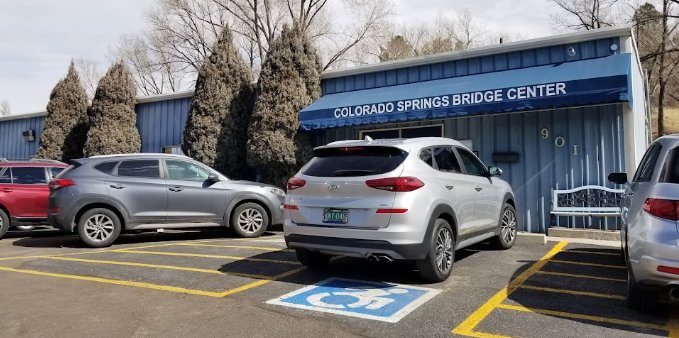
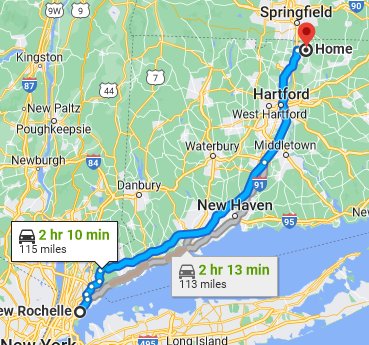
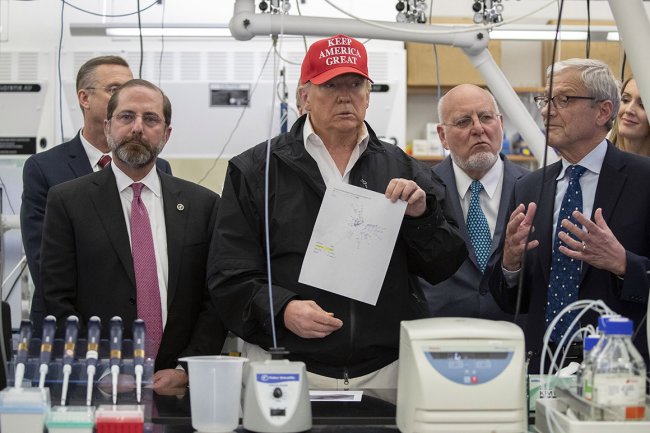
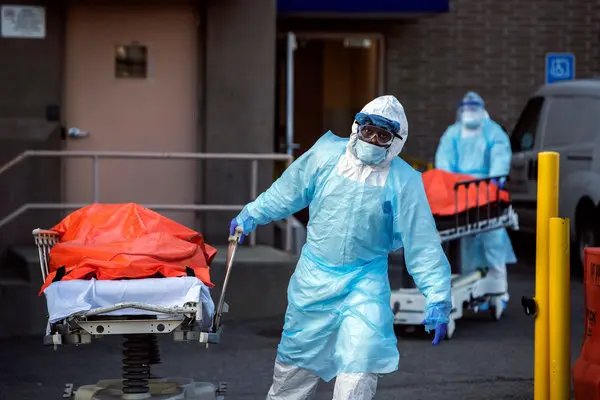

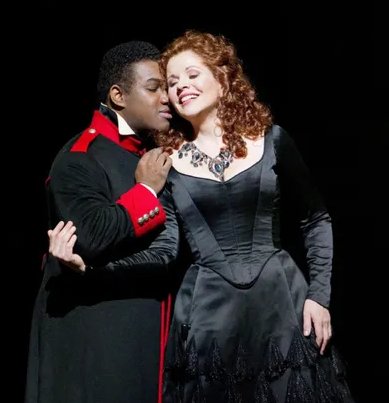
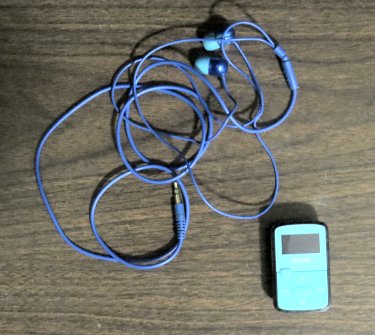
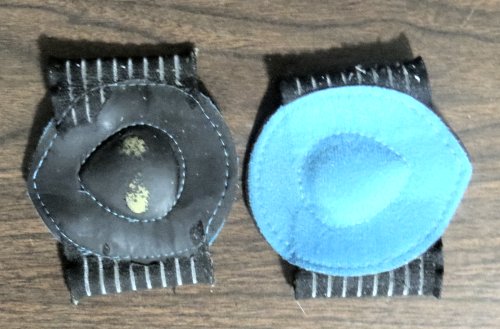
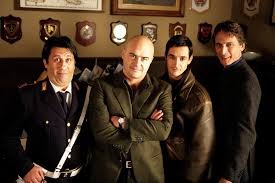

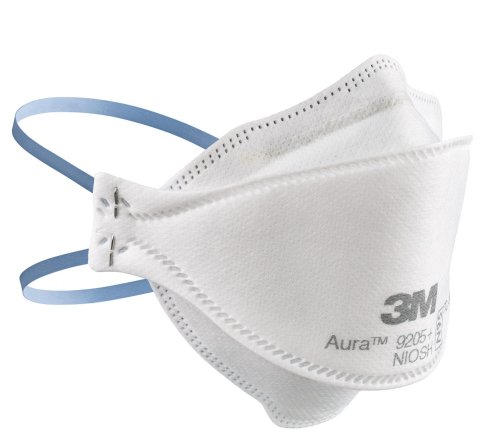
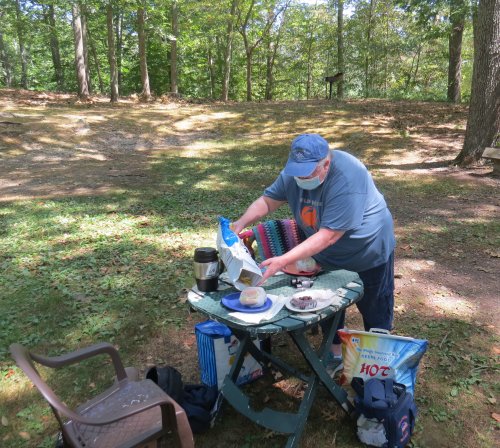
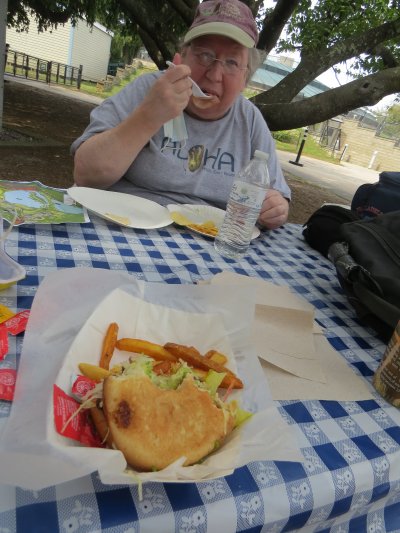

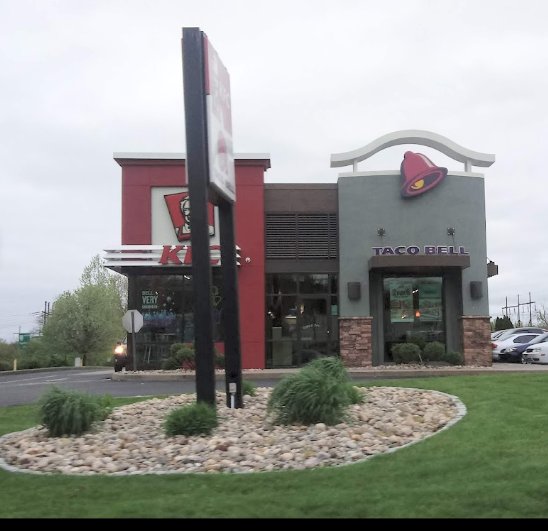
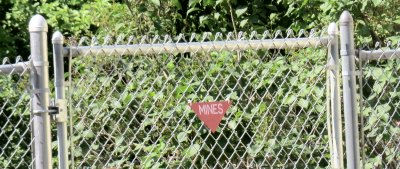
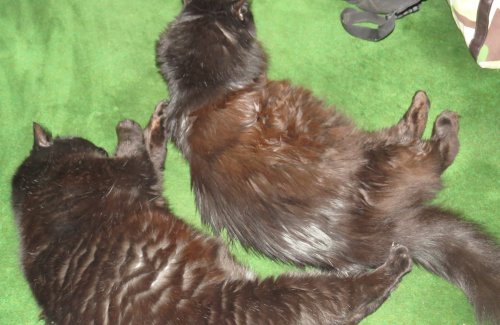
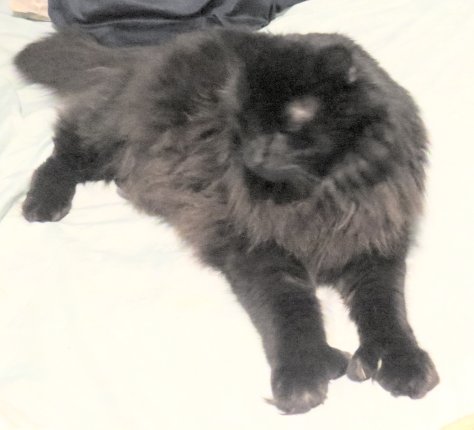
Pingback: 2021-2023 Bridge: Trying to Resign | Wavablog